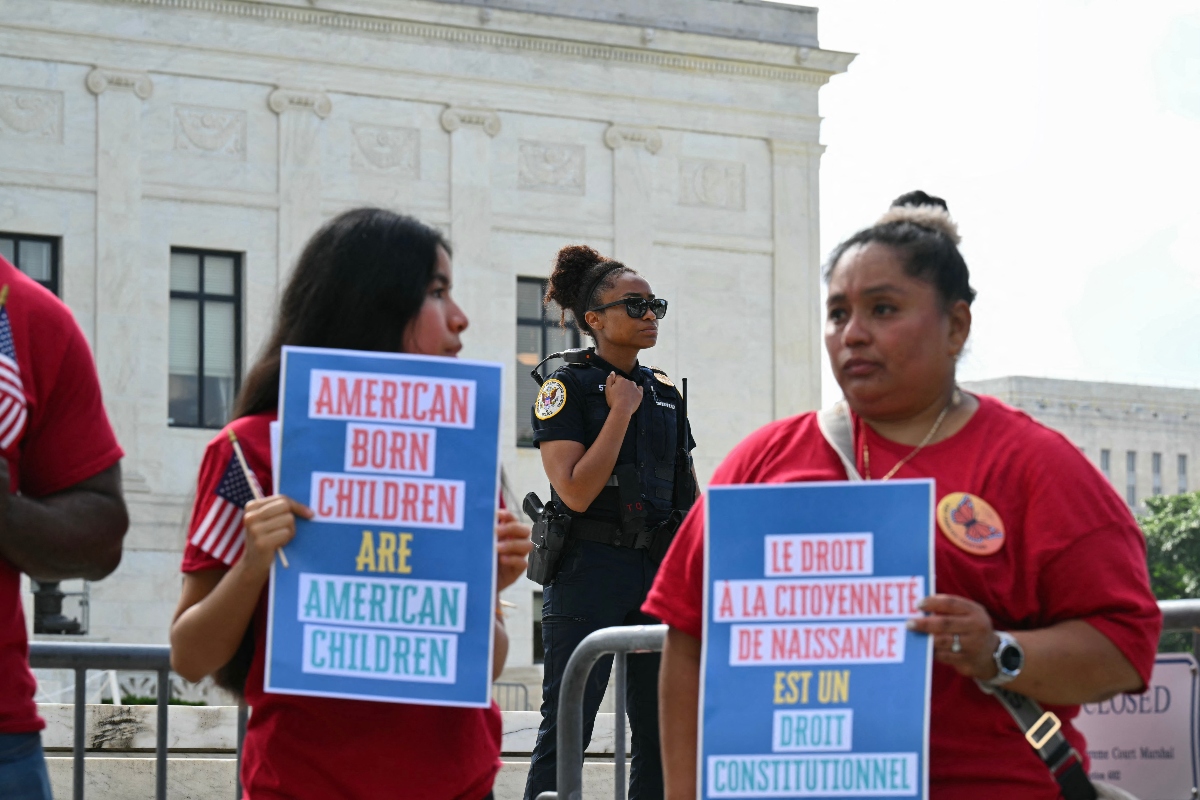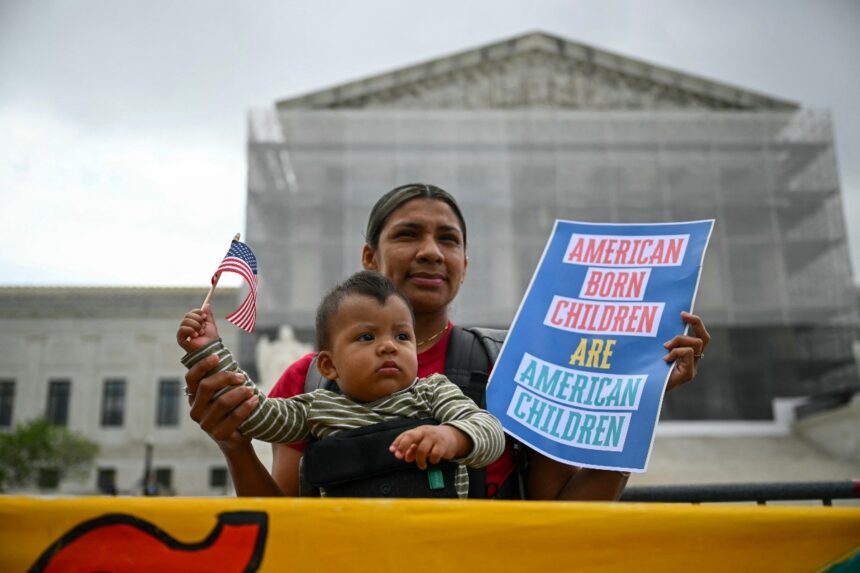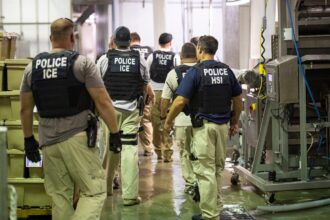The U.S. Supreme Court on Thursday, May 15, signaled that it is at least partially aligned with the Donald Trump Administration in its attempt to limit birthright citizenship, a proposal that has set off alarms in the immigrant community and civil rights organizations across the country.
During a nearly three-hour hearing at the highest court’s headquarters, the judges analyzed whether the lower courts acted correctly in blocking the executive order that Trump signed on the same day he assumed his second term in January 2025. The order seeks to deny automatic citizenship to children of undocumented parents or those with temporary visas, despite the fact that this right is guaranteed in the 14th Amendment of the Constitution, in force since 1868.
Conservative majority, divided opinions
With a conservative majority of 6 to 3, the Supreme Court agreed to review the case.
Although some justices expressed skepticism about the constitutionality of the decree, they were open to limiting the scope of judicial blocks imposed by lower courts, which would have implications for future legal challenges against presidential decrees.
Liberal Justice Sonia Sotomayor questioned the logic of allowing courts to block orders only for named plaintiffs, noting that it would force thousands of people to file individual lawsuits.
Fellow liberal Elena Kagan warned that denying birthright citizenship could leave thousands of babies “stateless,” which would have legal, social and humanitarian consequences.
What is at stake?

According to a study by the Migration Policy Institute (MPI), some 255,000 babies a year would be affected if birthright citizenship is eliminated.
In the long term, this measure could increase the undocumented population in the United States by millions, as well as lead to forced or voluntary departures from the country for fear of family separation.
Organizations such as CASA and Forward.us, which filed lawsuits against the order, were present at the hearing.
The Government is trying to revoke a fundamental right that guarantees citizenship to anyone born here
Ama Frimpong, legal director of CASA
Outside the courthouse, dozens of demonstrators carried banners with messages such as “Citizenship is not negotiable” and “We were born here, we stay here”.
Among those present were political figures such as Nancy Pelosi and Congressman Adriano Espaillat, leader of the Hispanic Caucus.
Government arguments
The Trump Administration justified the order by claiming that birthright citizenship was created “to protect the children of slaves” and should not apply to those who, according to the president, travel to the country for the purpose of “giving birth for immigration benefits.”
Chief Justice John Roberts and Justice Amy Coney Barrett, both conservatives, did not rule directly on the constitutionality of the decree, but did raise doubts about the procedure followed by the lower courts to block it.
Supreme Court and birthright citizenship: What’s next?
The Supreme Court will not issue an immediate ruling.
The decision is expected to come between late June and early July, although some analysts believe that, due to the sensitivity of the issue, it could come sooner.
In the meantime, immigration attorneys advise Hispanic families in the U.S. to remain calm, get information from reliable sources and avoid falling for rumors.
Birthright citizenship remains protected until there is an official ruling, and any change would require an in-depth and probably slow legal process.























